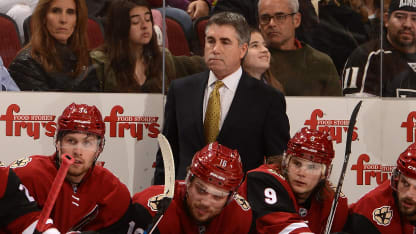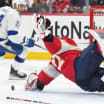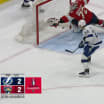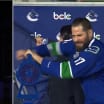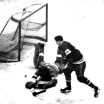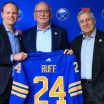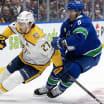A season later, that has changed. The Coyotes have more youth, more skill and a lot more wins. They have already matched last season's win total (24) at the All-Star Break and hold a playoff spot as the stretch run begins.
"The whole year last year was a slap in the face telling us we've got to get going the right way," Tippett said. "But every experience makes you better. I'd never been through anything like last [season] … I don't ever want to go through it again, either … but some parts of it you look back and realize you learned a lot about yourself and how you react in certain situations. And you learn you never want to go back there."
At 54, Tippett is young for a coach with his long resume. But he has been around long enough to see a lot of changes in the game and understand what it takes to stay in front of the curve. The Dallas Stars team Tippett led to a division title in his first season in 2002-03 wouldn't be as successful in today's game.
"Coaching is coaching," he said, "but you have to evolve with the personalities and the times as far as the game goes. Young players have a bigger role in the game. Social media. And if you don't evolve with it, you're going to be behind.
"You look at where the game was - hooking, holding, when you got the lead you weren't giving it up. When I was in Dallas, we were a big, strong team and if you get one goal you could bank on it. But the game is faster and the skill level in the game continues to rise with the young players and the talent they have."
The one constant is the way Tippett treats his players. Honest. Fair. But always with the goal of improvement.
"He's an amazing coach and a good guy, personally," Coyotes defenseman Connor Murphy said. "You leave conversations with him feeling better, and I think it's important to have that confidence knowing that your coach is on your side."
Tippett has had a lot of influences on his coaching style. He played for Scotty Bowman, Dave King and Terry Simpson, and spent much of his playing career in Hartford, counting among his teammates Joel Quenneville. Ron Francis and Kevin Dineen, who all later became NHL head coaches.
"We had a core group of guys who were just hockey players," he said. "We would stand together at the blackboard before games and figure out what we were going to do."
But now Tippett realizes the big picture of what it took to be a coach.
"I thought I was a pretty smart player and played in situations where you needed to be smart," he said, "but I didn't have a clue [when it came to coaching]. Being a player is all about what you do. When you are a coach, it's about 23 players, and that's a much bigger task. The hours, the commitment to the team is a whole different thing, but it's a challenge I embrace."
